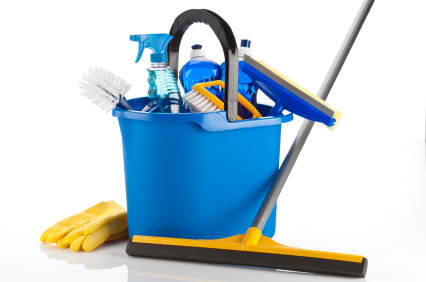 With news of another neurologic EHV-1 case in Southern California at the end of March it is clear that we are going to keep hearing about EHV-1 for some time to come. I am someone who tries to find the positive and opportunities for growth in all situations and if there was a positive to last year’s EHV-1 outbreak it was that it has made people give more thought to how they can prevent diseases in their own horses.
With news of another neurologic EHV-1 case in Southern California at the end of March it is clear that we are going to keep hearing about EHV-1 for some time to come. I am someone who tries to find the positive and opportunities for growth in all situations and if there was a positive to last year’s EHV-1 outbreak it was that it has made people give more thought to how they can prevent diseases in their own horses.
Having spent almost 7 years working in the field of epidemiology I can say that I have seen a lot of poor biosecurity practices both day-to-day in barns but particularly away from home at events.
Certainly at the time of the outbreak there was a lot of talk online from people about how they were going to change their ways but a year later have they remembered or will they slip back into old habits? After all, does it really matter if you grab a stiff brush from your friends grooming box?
Your horse’s nutritional status has a lot to do with how robust their immune system is and how well they will be able to defend themselves against the threat of a pathogen. Building a healthy immune system through a balanced diet is just part of the biodefense system you should be creating to keep your horse healthy.
With the summer fast approaching and all of us wanting to get out and play more there are some things you should know that will help keep your horse safe. I asked Dr Alana McQuarry DVM MPVM to share some things you need to know to avoid infectious diseases. You will find the first installment of this valuable information below.
Additionally with her background working for the California Department of Food and Agriculture she is a great person to explain what exactly happens during an outbreak of a reportable disease and how you can help the state agencies to help protect your horse. You will find some of this information below with more to come next week.
Once you’ve read Dr McQuarry’s great information be sure to download the pdf version and additional links and to register here for our teleseminar with Dr McQuarry on April 25th where she will be able to answer your personal questions.
Before we start let’s define the terms infectious disease, biosecurity and fomite.
Infectious disease – Any disease caused by the entrance, growth, and multiplication of microorganisms in the body; a germ disease (A disease caused by a microorganism or other agent, such as a bacterium, fungus, or virus that enters the body of an organism.). It may not be contagious from one animal to another.
Examples of infectious and contagious disease: EHV-1, influenza
Example of infectious but not contagious disease: ascarids (roundworms)
Biosecurity – A somewhat scary sounding word that really just means taking steps to prevent spread of disease in and outside of your barn. Biosecurity embodies all the cumulative measures that can or should be taken to keep disease (viruses, bacteria, fungi, protozoa, parasites) from a farm and to prevent the transmission of disease (by humans, insects, rodents, and wild birds/animals) within an infected farm and to neighboring farms.
Fomite – An inanimate object or substance that is capable of transmitting infectious organisms from one individual to another. Common fomites for horses: food/water buckets, brushes, tack, owners, veterinarians.
Clinical signs of infectious disease will vary depending on what the disease is and how severely affected the horse is. Most important to disease recognition and treatment is knowing your horse’s normal behavior; anything out of the ordinary should encourage you to check your horse over thoroughly and call your veterinarian early if concerned.
Signs of definite concern:
Don’t panic! There are many conditions, particularly when caught early, that are easily treated or managed. In the rare instance that your horse contracts something more severe, there are many resources available to provide medical care or guidance.
During the veterinary visit, your veterinarian will give you guidance on how to proceed to get your horse well and to protect other potentially affected or exposed horses. In the very rare instance that a reportable foreign animal disease is suspected, your veterinarian will ask that no animals are moved off your premises and they will call the California Department of Food and Agriculture’s Animal Health Branch. CDFA (or USDA, who works closely with CDFA in California) will send a veterinarian to talk to you, examine the horse, and possibly take some samples for diagnostic testing. (More to come in Part II on reportable diseases).
This is a good checklist to get you thinking about ways to keep your facility and horses safe from disease CFSPH prevention practices checklist for horse facilities.
With this important information in hand you can now take steps to reduce the risk of your horse getting an infectious disease. In part II we will discuss reportable diseases in more detail. In the meantime Click Here to download your copy of this information plus links to other important resources. We would love to hear what measures you take to protect your horse and to hear your questions so please do leave us comments below.
Preventing Infectious Disease by Clair Thunes PhD and Dr Alana McQuarry DVM is licensed under a Creative Commons Attribution-NonCommercial-NoDerivs 3.0 Unported License.